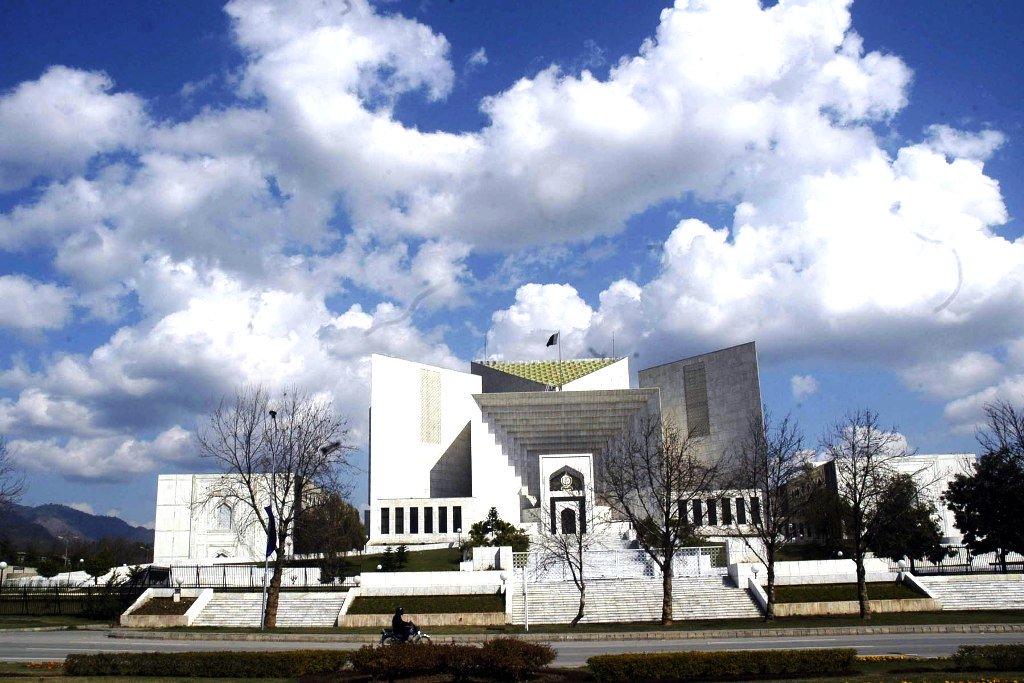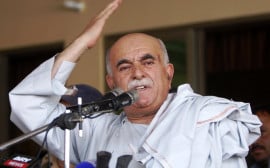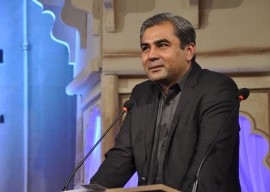
The hearing of the land reforms case continued in the Supreme Court on Saturday when senior jurist and Supreme Court advocate Abid Hassan Minto pleaded before the bench to set aside an earlier judgment.
After a preliminary hearing, the three-judge bench, headed by Chief Justice Iftikhar Muhammad Chaudhry, issued a notice to Attorney General of Pakistan Irfan Qadir for his input on the matter and adjourned the hearing for an indefinite period.
Chief Justice Chaudhry remarked that the court was facing a dilemma on how it could set aside a concluded judgment. The review filed against the Qazalbash Waqf case judgment was dismissed on technical grounds that it was time barred (when the time set for carrying out a particular task has elapsed).
However, Minto argued that the Shariat Appellate Bench of the Supreme Court’s decision was not binding on the apex court and it can be reviewed even now.
The petitioners – Awami Workers Party and others – maintained that the existing feudal system in the country rendered the current election process largely meaningless as a process that is supposed to entitle people to freely choose their true representatives.
The current system of land owning was fundamentally inhuman and exploitative. It was not only desirable, but necessary and absolutely according to the mandate of the Constitution that it should be abolished, they said.
Land reforms were brought about by Martial Law Regulation 115 of 1972 and the Land Reforms Act, 1977. They were eventually challenged before the Federal Shariat Court (FSC) which dismissed the petition, saying that land reforms were not un-Islamic and it did not have the jurisdiction to examine MLR 115 and LRA 1977, as they were protected by Articles 24 and 253 of the Constitution.
The court maintained that declaring land reforms un-Islamic would make the articles nugatory and it did not have the power to affect any provision of the Constitution.
But the FSC judgment was appealed before the Shariat Appellate Bench of the Supreme Court by the Qazalbash Waqf. The court, comprising three Supreme Court judges and two ulema members, accepted the appeal and said that it had jurisdiction to examine whether or not land reforms were Islamic and it did not matter that in declaring them un-Islamic, some provisions of the Constitution would be affected and rendered nugatory.
All but one judge accepted the appeal.
Some facts about the judgment
Advocate Minto argued that even on merits, the Appellate Bench’s judgment provided ample grounds for reconsideration.
Justice Muhammad Afzal Zullah, Chairman of the Appellate Bench immediately said that the court was inadequately assisted and has hesitated in declaring the decision to be final. Yet, in a case of such significance, he chose to dispose of the matter by agreeing with the views of Maulana Taqi Usmani, a member of the bench, rather than call for further assistance to ensure that the judgment was based on sufficient scholarly input representing all schools of thought.
Minto added that the judgment required reconsideration on the merits that at best it appears to be a “reluctant” judgment, because out of a total of five appeal judges, one dismissed the appeals, one expressed reservations on the assistance provided and the finality of the decision and one judge only declared a small number of the provisions un-Islamic.
Published in The Express Tribune, February 24th, 2013.





























1714024018-0/ModiLara-(1)1714024018-0-270x192.webp)









COMMENTS
Comments are moderated and generally will be posted if they are on-topic and not abusive.
For more information, please see our Comments FAQ